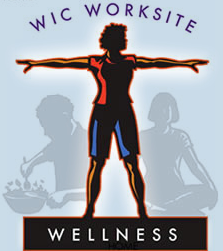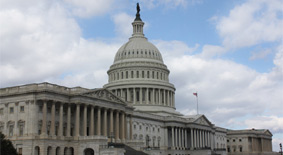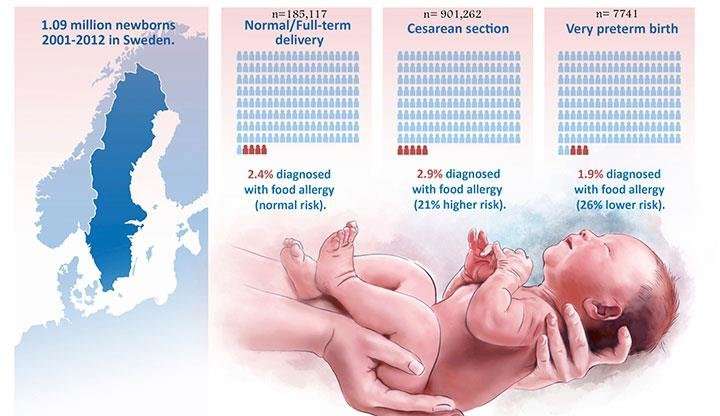|
Mental Health
The mental health of each family member affects the entire family. Poor mental health of parents is associated with childhood food insecurity, independent of family income. Although their stressors or behaviors may be different, children can also experience mental illness. Barriers - including access to care, fear of the stigma associated with care, and lack of insurance - prevent many from seeking mental healthcare services. WIC Can Help families get the support they need.
|

Selfless Kindness Helps You, Too!
Many studies have hinted that generosity activates the reward network of the brain but new research says that some brains were
more active during altruistic generosity
, indicating that there is something unique about being altruistic with no hope of gaining something in return, so start planning for your next random act of kindness!
|
Shopping at Amazon?
Support CWA without spending anything extra by using
AmazonSmile!
|
Did someone share this with you? Sign up here to get the CWA Flash directly!
|
|
 |
|

Public Charge
The official
draft Notice of Proposed Rulemaking
was posted on the Department of Homeland Security's (DHS) website on September 22nd. Although it did not include WIC, Head Start, or several other programs listed by the earlier leaked draft, and it did not include dependent citizen children, it still stands to hurt many WIC families - the programs that are included are SNAP, Medicaid, Section 8, and Low Income Subsidy for prescription drug costs under Medicare Part D, all of which many WIC families depend on. Additionally, many immigration lawyers are advising families to withdraw from all programs and many families are withdrawing on their own, out of fear. The NPRM was entered into the
Federal Register
last Friday, and the public comment period opens Wednesday, October 10th and closes December 10th. DHS specifically requests feedback on the question of whether to include ANY public benefit program in a public charge determination. The WIC community must forcefully reject this proposal and demand the explicit exclusion of WIC from any rule. Further, we must share with DHS the public health reasons that including programs like Medicaid and SNAP in a public charge determination is the wrong action to take. Regulatory commenting is not lobbying. ACTION: NWA will be hosting a webinar Wednesday, October 10, at 1:00 pm ET (
registration required
). They will discuss exactly what is in the proposed rule and how WIC staff can submit public comments. NWA will also be providing model comments that can be customized.
|

WIC Funded Through Dec. 7
An agreement was not reached on the "minibus" spending bill package that would have included funding for WIC in FY 2019 by the September 30 deadline. As a result, Congress chose to extend FY 2018 funding levels through December 7 with a continuing resolution (CR) until a final agreement can be reached. Another CR may be necessary to move past the holidays, unless swift agreement is reached. At stake for WIC is not only the program's overall budget authority and rescission level, but also funding for set-asides, such as the Breastfeeding Peer Counselor program. The Senate-passed Agriculture-FDA appropriations bill contained a nearly 15 percent increase for the Breastfeeding Peer Counselor program, thanks to an amendment by Senator Bob Casey (D-PA). Please review the NWA analysis of the House committee and Senate committee and floor bills.
|

State Bill Update
Gov. Brown has wrapped up his final legislative session by signing or vetoing over a thousand bills before him. Several bills on CWA's Bill Monitor were signed into law, including AB 2785 (Rubio), which required California colleges to provide lactation accommodation for students; AB 2507 (Jones-Sawyer), which requires CA jails to develop "pump and pick-up" policies for lactating inmates; AB 1871 (Bonta), which guarantees that all low-income students have access to at least one meal at school; SB 1192 (Monning), which requires the default beverage offering with children's restaurant meals to be milk or water. ACTION: For the complete list, see the CWA bill list.
|

Gubernatorial Candidate's Debate: Listen!
If you missed the one and only debate between the candidates to be our next governor, Democrat Gavin Newsom and Republican John Cox, you can
listen or read the transcript
.
They touched on housing, marriage equality, criminal justice, gun control, immigration, infrastructure, climate change and more. Catch the highlights. Most importantly, vote!
|
Fall Convening Countdown
The back-to-back state WIC meeting day and CWA Education Day, Nov. 5-6, Gaining Momentum & Moving Forward, is just a month off. The two days will be packed with information on the new WIC Card, WIC WISE and more, followed by updates on the Smile, California campaign, horizontal integration and workforce recruitment and retention. Come ready to ask questions, learn about new opportunities and network. ACTION:Check out the info, register, book a hotel room, and check the agenda.
|
WIC Capitol Education Day
Our legislators appreciate the information WIC staff provide on how WIC services are provided and the need and impact in local communities. Capitol Education Day, Nov. 7 is an empowering opportunity to provide this information. This year will be more interesting, coming the day after the election. Don't miss this opportunity to join your colleagues in Sacramento and proudly share about your local agency WIC benefits and services. ACTION: Register and all materials, and breakfast will be provided.
|

Federal Funding for State and Local Programs Decreases Infant Mortality
Federal funding for state and local-level assistance programs such as SNAP and WIC
significantly reduced infant mortality
, according to new research. Researchers noted that programs aimed at improving the health of pregnant women are of particular importance because prematurity and low birth weight are among the strongest
predictors of infant mortality
, and lower socioeconomic status - particularly poverty - is strongly linked to these conditions. Once the researchers controlled for unique demographic and socioeconomic characteristics of each state, they found that increases in federal funding were associated with significantly lower rates of infant, neonatal and post-neonatal mortality rates. Specifically, increasing a state's per capita federal funding by $200 could save one infant's life for every 10,000 live births. Increased funding was linked to lower mortality for both white and black infants, however, black infants' outcomes were particularly affected by this funding.
|

Breastfeeding May Cause Genetic Changes to Reduce Stress in Infants
New research suggests a connection between breastfeeding and the activity of a gene in infants that regulates the physiological response to stress, specifically the release of the hormone cortisol. Over 40 full-term, healthy infants and their mothers, one-half of whom breastfed for the first five months and one-half of whom did not, participated in the study, which measured the cortisol stress reactivity in infant. Breastfeeding was associated with decreased DNA methylation and decreased cortisol reactivity in the infants, indicating an epigenetic change in the babies who were breastfed, resulting in reduced stress compared to those who were not breastfed.
|

Babies Born by Caesarean are at Higher Risk of Food Allergies
A study of more than a million children indicates that children born by caesarean are at a 21 percent higher risk of developing food allergies. Researchers theorize that children born by C-section have a different bacterial flora than that passed on to vaginally delivered children and that the flora may impact the risk of developing food allergies. Children with low Apgar scores at birth also are at an increased risk of developing food allergies, as well as children who have a higher birth weight than expected. Surprisingly to researchers, the study also showed that early preterm babies (born before 32 weeks) run a 26 percent lower risk of developing allergies. Researchers think that the lower risk may be because of a different food introduction to very preterm infants compared to other children, or that factors relating to neonatal care may protect against food allergies.
|

Breastmilk Puzzles
The more we learn about breastmilk the more we don't understand. This brief article summarizes the complex and dynamic nature of breastmilk and breastfeeding that optimize growth, defense, protection and more for baby and mother.
|

Hispanic Heritage Month Breastfeeding Resources
|
Annual Health Trends Report
The Center for Disease Control and Prevention's National Center for Health Statistics has published an annual report on trends in the health of the U.S. titled "
Health, United States 2017: With Special Feature on Mortality
." The Health, United States series presents an annual overview of national trends in health statistics. The report contains a Chartbook that presents trends and current information on selected measures of morbidity, mortality, health care
utilization and access, health risk factors, prevention, health insurance, and personal health care expenditures. The Chartbook includes a Special Feature section, which examines a topic of public health interest and policy relevance. In addition to the Chartbook, Health, United States, 2017 provides 114 Trend Tables organized around four subject areas: health status and determinants, health care utilization, health care resources, and health care expenditures. The Trend Tables, along with the other components of Health, United States, 2017, are available for download.
|
|
|